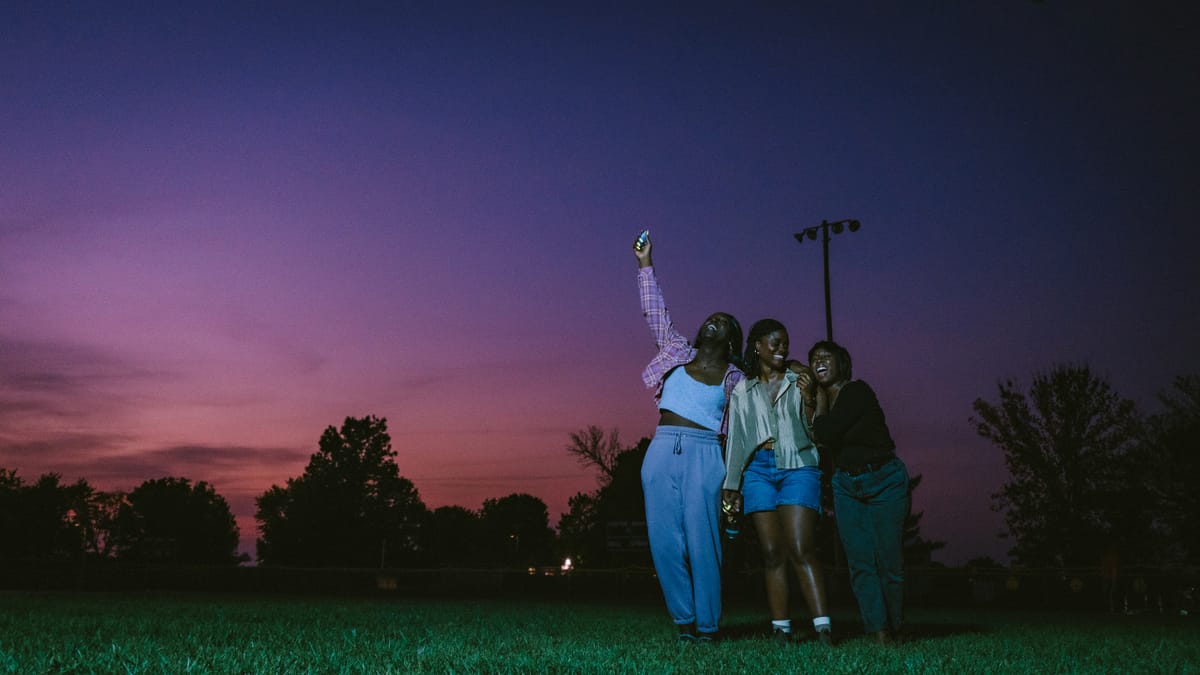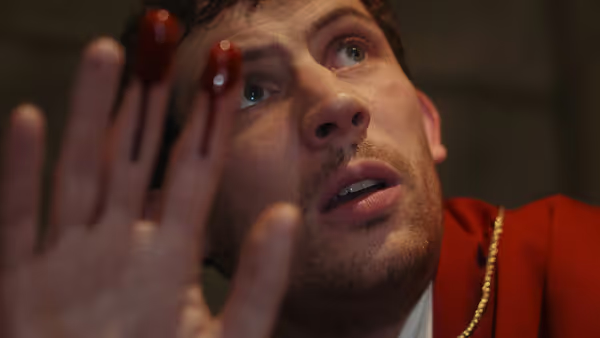Dreams In Nightmares
This new twist on the road trip movie is a stunning ode to Black queer femmes, and what it truly means to pursue a better life.

Z (Denée Benton) keeps having a dream, a dream which she isn’t able to interpret, and from which she always awakens at the exact same point. Each night, she finds herself in darkness, approaching a narrow doorway through which she sees a “burnt orangey, kind of sienna expanse” - but, before she can step through and experience what’s on the other side, she wakes up. She says, “I think my ancestors are trying to tell me something”.
We see visuals of her dream as she recounts it to her partner, and as the colours of the “other side” transition to the golden glow of the beautiful home they share, it seems her reality is dreamlike too in its tranquility and peacefulness. We watch Z performing a spiritual ritual, surrounded by lit candles, singing a classic Christian hymn, ringing a golden bell, as the dappled sunlight streams in through the window in front of her. And then - a harsh whiteness, the synthetic light of a computer screen upon which Z reads an email, informing her she has lost her job as professor of creative writing at California University of the Arts. The beautiful life she has created for herself has been interrupted by a harsh new reality: as she puts it, “late stage capitalism strikes again!”. Existing within these structures for Z is nothing new, but, here is the latest nightmare scenario to contend with. The question now is how to respond - will she commit to the confines of academia in the hopes of a more stable future, or instead finish writing her novel, dedicating time and space to her own imagination, but with no certainty as to how she will earn a living in the world.
Before she makes her choice, she goes to visit her best friends, living in Brooklyn. Tasha (Sasha Compère) has also just been laid off from her corporate job, and is unsure of what the future holds, and Lauren (played by Dezi Bing) who is working multiple jobs to get by, but whose true passion is poetry. Tasha immediately appears the most tightly wound of the three, visibly stressed by her various responsibilities, having abandoned her younger self’s dreams of a career in theatre for a more stable, and, as she later puts it, “real life”. Once the three friends are reunited, Tasha experiments with her image on a night out, perhaps trialling stepping into a new version of herself. When they return home after their wild night, it is Tasha who suggests a spontaneous road trip to try to track down their elusive friend Kel (Mars Storm Rucker), whom they haven’t heard from in several months and are growing increasingly concerned for.
Z and Lauren are thrilled at the idea, but after a few moments of excited discussion, Z says “We have to be careful about where we stop, though.” Another harsh reality interrupts their joyful imaginings - that as much as they want to enjoy, as Tasha puts it “a quintessential American road trip”, they can’t be sure where, if anywhere, they will be safe as a group of Black queer femmes. Lauren’s response? “Well...that’s what Yelp is for.” Finding ways to navigate a hostile world is something they are all too used to.
These conflicting realities, questions of when a dream becomes a nightmare and vice versa, are some of the themes explored in Dreams In Nightmares. Archival footage of Black people throughout America’s history, discussions of heritage and of The Great Migration bring to mind the myth of the American dream, and what it means to pursue a better life, then and now.
Each location our trio visit brings up its own challenges and reminders of the threats they face; writer and director Shatara Michelle Ford said that the film’s road trip format was a way for them to explore the concept of code switching, that Black queer people in America must present themselves differently depending on their environments, and this tension is keenly felt in each stop on the trip. Even alongside this, it is truly wonderful throughout the film to see the characters joyfully existing outside of society’s limitations; there is a beautifully positive depiction of a polyamorous relationship, of fluid sexuality and gender expression, of transness and queerness as emancipation from limiting beliefs. As with Z’s dream, there is a strong sense of a better world being possible, and, through chosen family, judgement-free love, and an embracing of creative passions, we witness these characters striving to create as beautiful a reality for themselves as possible.
Shatara Michelle Ford has made a stunning film, its moments of non-linear storytelling mirroring dreamlike confusion, whilst simultaneously presenting such real, lived-in characters whose friendship feels incredibly authentic. The performances are magnificent across the board, and the music by Lia Ouyang Rusli is perfect, with one particular dreamy musical motif popping up like a warm hug throughout. Cinematographer Ludovica Isidori does wonderful work too, with frames so gorgeous you could take a screenshot at almost any point in the film and find yourself with an image that would make a perfect poster or print. While Dreams In Nightmares has a running time of just over 2 hours, it is thoroughly engaging from start to finish, and is a really beautiful, thought provoking ode to Black queer femmes, that asks as many questions as it answers.



